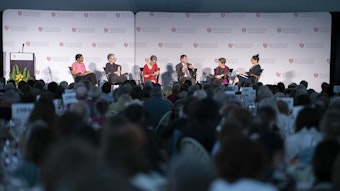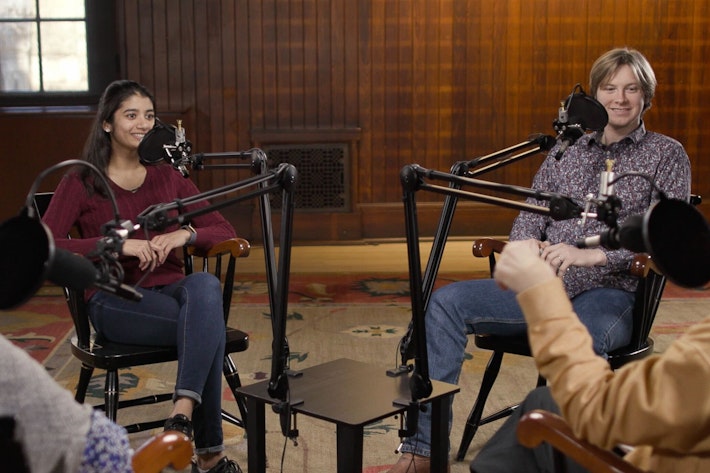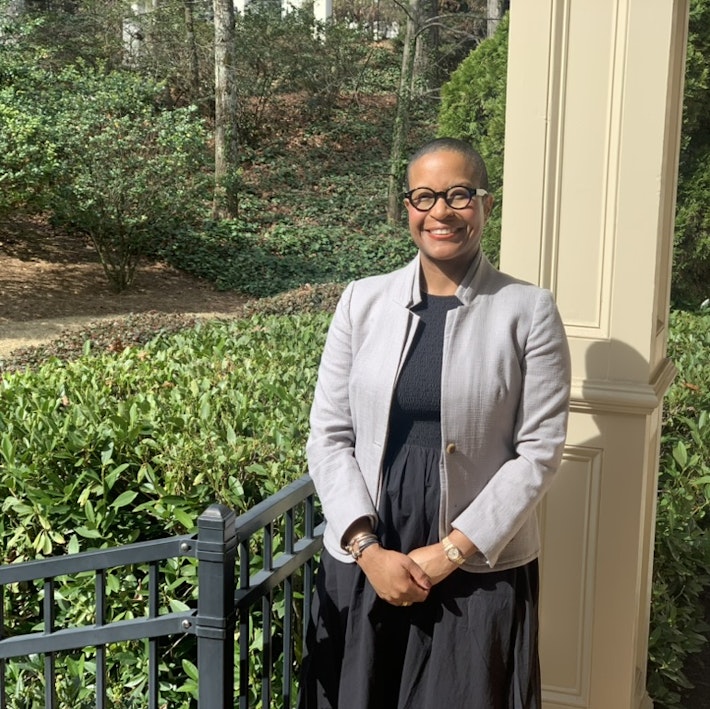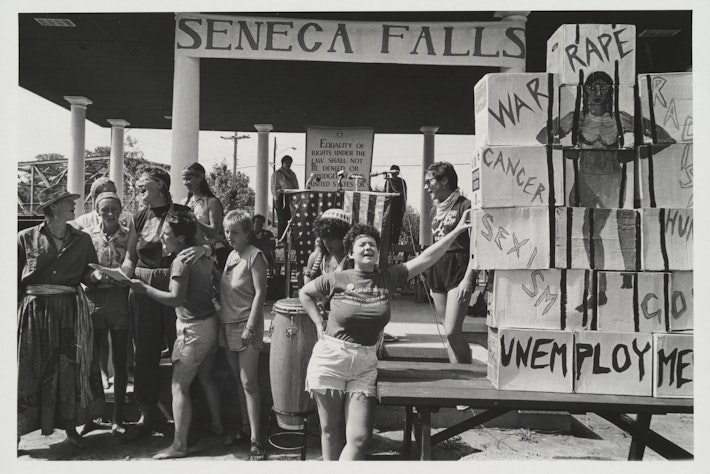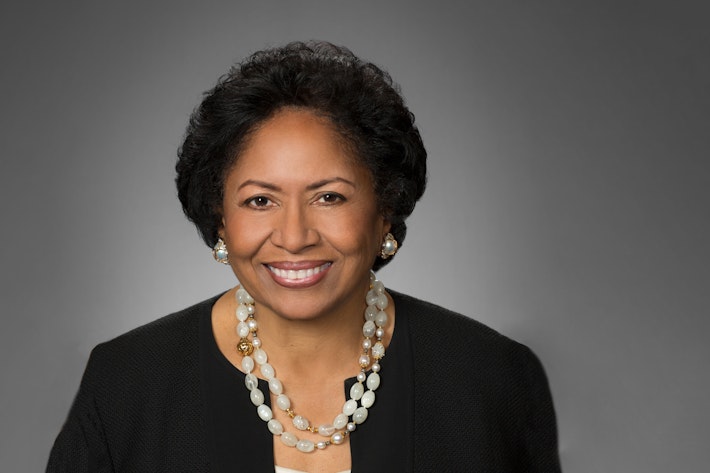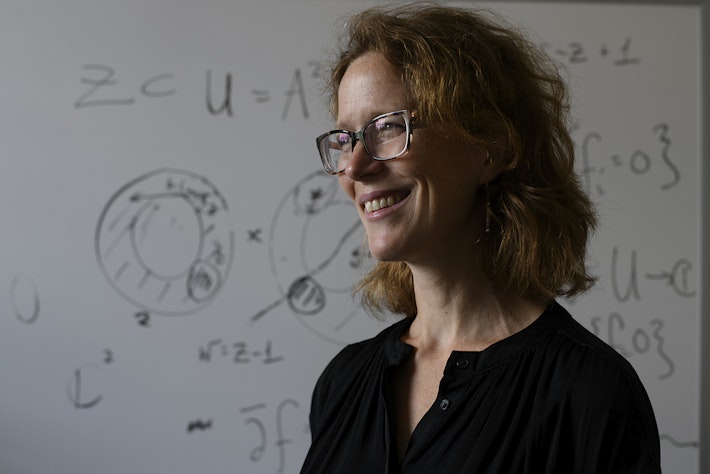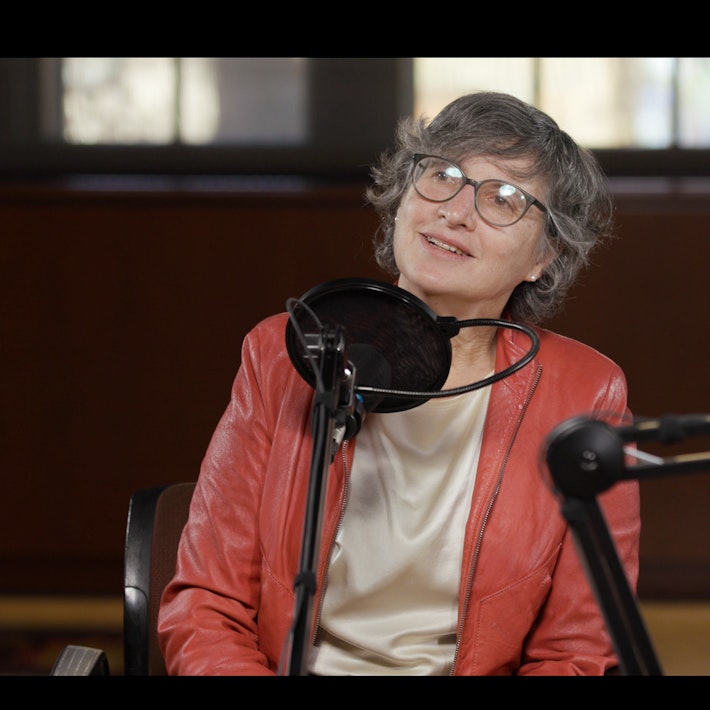On Radcliffe Day, a Show of Power
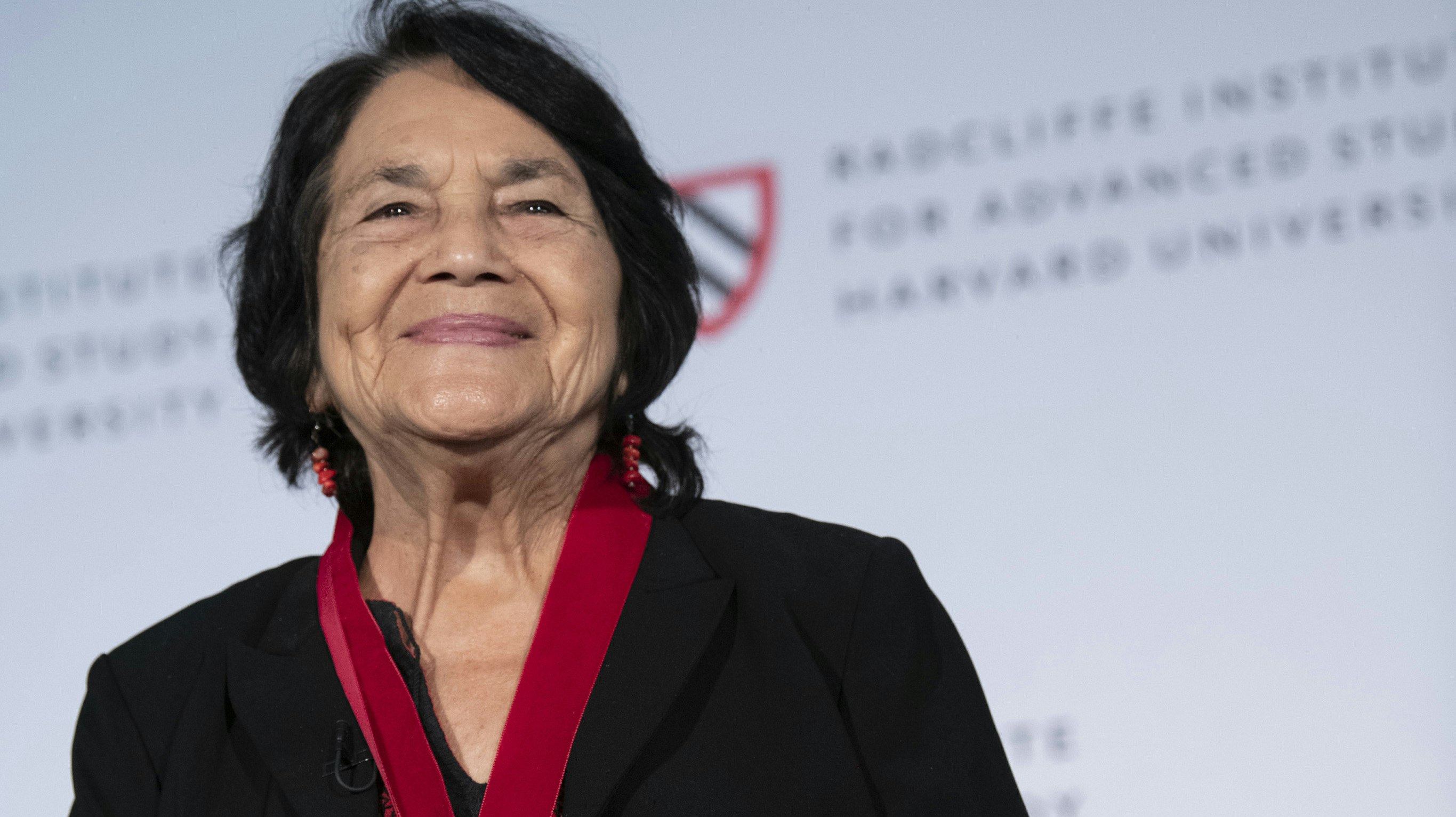
Dolores Huerta, an iconic advocate for workers and women, proves a rousing medalist.
ON RADCLIFFE DAY, before nearly 1,000 alumnae/i and admirers, after tens of thousands of hours organizing, countless marches, a severe beating by a California policeman, an Eleanor Roosevelt Award for Human Rights, and a Presidential Medal of Freedom, Dolores Huerta received the Radcliffe Institute’s highest honor: the Radcliffe Medal.
A cofounder with Cesar Chavez of the United Farm Workers of America (UFW) and president of her eponymous foundation, Huerta, now 89, rose to prominence in the 1960s as a leader of a years-long strike on behalf of grape harvesters in California. Her efforts helped laborers secure collective bargaining rights, better wages and job conditions, and benefits. She also created the UFW’s famous slogan, “¡Sí, se puede!”: “Yes, we can!”
In her remarks, Dean Tomiko Brown-Nagin praised Huerta as a leader who “has been fighting for civil rights for more than 60 years. . . . I’m struck by the sheer range of critical issues where Dolores has been in the vanguard. She has fought for the rights of laborers and Latinos. She has been a powerful voice for environmental protection, for women’s rights, for voting rights, for LGBTQ equality, and for so much more. . . . A self-described born-again feminist, she is a powerful voice for women’s equality.”
Huerta sat down with the broadcast journalist Soledad O’Brien ’88 for a discussion that applied the lessons of her past to the urgency of contemporary civil rights struggles. Her top priority, Huerta said, is “to teach people that they have power.”
“They may not speak English, they may not be citizens . . . they may be very poor,” she said, “but the power is in their person.”
Huerta said that the vast majority of Americans are “people of good heart,” and were so in her earliest days as an activist. “But they had no idea that farmworkers were suffering,” she said. “Once they knew, it made all the difference in the world.”
O’Brien pointed out that in the 1970s, the UFW had more female leaders than any other union in the country. Huerta responded, “They’d ask Cesar, ‘Why do you have so many women in leadership positions?’ and he’d say, ‘Because they do the work.’”
The conversation also touched on the teachings of the Indian nationalist and spiritual leader Mahatma Ghandi, whom Huerta cited as an inspiration. In her work with the UFW, she said, “we were very strict about nonviolence: we made people take a pledge.” Nonviolence should be taught in schools, she added, so that machismo loses its appeal, and boys learn to respect women.Addressing the state of the nation, Huerta called for corporations to take greater responsibility for food security. She also lamented the fallout from the culture war. Powerful forces foment arguments over abortion, LGBTQ rights, and other issues because “they want to divide people,” she said. “As long as they keep us divided on some of these issues, we’re not focusing on the real issues, which are the economic issues.”
“We have a lot of inequity,” Huerta added, “[but] nobody is going to give away their power. We′re going to say, ‘We have our own power, and with all the power of our people, which is the majority here in the United States of America, we will demand that you share your wealth. We will demand that you share your power.”
Huerta’s conversation with O’Brien was preceded by a panel featuring Sara Bleich PhD ’07, RI ’19, the Carol K. Pforzheimer Professor at Radcliffe and a professor at the Harvard Chan School; Jennifer Gordon ’87, JD ’92, a professor at Fordham Law and an immigration activist; Frances Moore Lappé, cofounder of Food First and the Small Planet Institute; Daniel A. Sumner, the director of the University of California Agricultural Issues Center and the Frank H. Buck Jr. Distinguished Professor in the Department of Agricultural and Resource Economics at the University of California, Davis; and Alice Waters, a food activist and the owner of the famed Berkeley, California, restaurant Chez Panisse. O’Brien moderated the discussion.
The panelists began by discussing food insecurity and ethics. Pointing to the perceived conflict between profitable agriculture and sustainable farming that pays its workers fairly, O’Brien asked, “Does it have to be that way?”
Don’t underestimate the role of politics, Lappé answered. “Hunger is not caused by scarcity of food,” she said. “It’s caused by scarcity of democracy. . . . We know about climate-friendly regenerative farming and all the good things we’re talking about here. So why aren’t they taking off ? My answer is . . . our democracy is broken.”
Gordon addressed the economic structure of the US food system, with “brands at the top . . . subcontracting down to where it can be done most cheaply, and that is a synonym for treating workers poorly.” But Lappé pushed back, pointing to the Wisconsin cooperative Organic Valley, which started in 1988 with a handful of farmers and is now a $2 billion business. “They kept so true to their democratic and organic principles,” she said.
Sumner said that if lawmakers forced farmers to pay better wages, they could mechanize or plant less-labor-intensive crops. He argued that food labels stating whether the product came from fairly paid workers would have more success.
“I think people are willing to pay for that,” he said.
Bleich favored a more aggressive course of action. “We need blunt policy intervention to change our environment,” she said.
Government programs to improve public health have had success, she added, citing an Obama-era restaurant menu labeling initiative and a soda tax that raised tens of millions of dollars for neighborhoods in Philadelphia.
Huerta closed the ceremony with an unscripted reminder of her roots in labor movements. She urged her listeners to encourage President Larry Bacow, seated among them, to settle Harvard’s contracts with its graduate students’ union and to start every day by washing their faces, brushing their teeth, and calling their representatives in Washington.
“Who’s got the power?” she said.
“We’ve got the power!” hundreds
of people shouted back.
“What kind of power?”
“People power!”
“¡Sí, se puede!”
Lucia Huntington is a writer in Cambridge.
